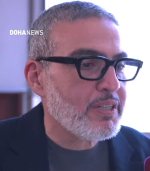
New research suggests that one in four people in England will experience hearing loss by 2030 as a result of listening to music at excessively high volumes. NHS figures
recently published indicate that over a third of patients seeking treatment for hearing problems in hospitals are under the age of 50, accounting for nearly 50,000 admissions.
This represents a significant increase compared to a decade ago when individuals under 50 comprised only a quarter of hearing-related hospital admissions. Experts believe that if this trend continues, a substantial portion of the population will have compromised hearing, with many requiring hearing aids. The primary cause of the surge in hearing problems is attributed to the regular use of headphones to listen to loud music.
"It has become commonplace for people to listen to music at very high volumes throughout the day," explains Dr. Luke Twelves, medical lead at clinical trial firm Lindus Health, which conducted the research. "As a result, we are now witnessing a concerning number of young individuals damaging their hearing. Thousands of people in the UK will eventually need hearing aids due to this damage."
Hearing loss is commonly associated with old age, with nearly half of individuals over the age of 75 experiencing difficulties in hearing. This is typically attributed to the natural deterioration of the ear's bones and nerve-endings over time, affecting hearing capacity.
However, there is growing concern that these delicate parts of the ear are being harmed at much earlier ages compared to previous generations, largely due to the widespread habit of listening to loud music through headphones. Last year, the World Health Organization launched a campaign urging technology companies to implement volume limits for music played on mobile phones and personal audio devices.
The recommendations also emphasized the impact of loud music in venues on attendees' hearing. Prolonged exposure to loud sounds can lead to tinnitus, a condition characterized by persistent ringing or buzzing sounds in the ears, which can last for months or even a lifetime. Currently, there are no effective treatments for tinnitus.
In response to these concerns, Lindus Health is collaborating with health firm Oto to conduct a clinical trial aimed at assessing the effectiveness of therapy in reducing the severity of tinnitus. "Tinnitus is highly prevalent in patients with hearing loss, and it can significantly impact a patient's well-being," notes Dr. Twelves. "While we have had limited success in developing drug treatments for tinnitus, therapy could prove to be a valuable tool in helping patients cope with the symptoms."
Dr. Twelves emphasizes that the best defense against hearing loss and tinnitus is to avoid regular exposure to loud sounds. "People need to be mindful of the volume levels when using headphones because once hearing is lost, it is unlikely to be restored," he advises. Photo by PJ, Wikimedia commons.









































